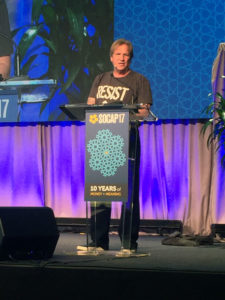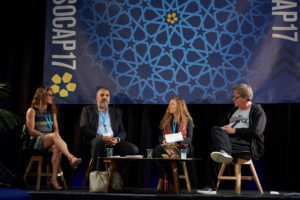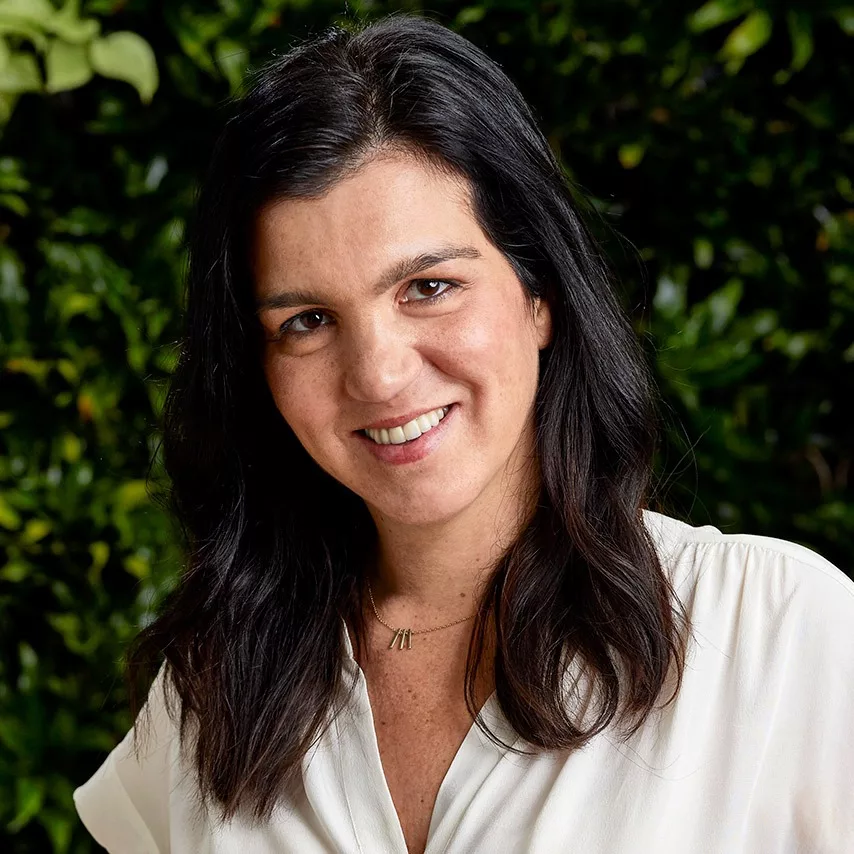A SOCAP Guest Post by Jed Emerson
For many of us who care about living in a just and sustainable world, this past year, since last we gathered here at SOCAP, has truly been challenging to say the least. Many feel we are called to resist and indeed we are!
I find myself reflecting upon the various forms of resistance available to us and the many ways we are called to place our bodies against the cogs of capitalism to challenge, to change, to redirect the forces our society has unleashed upon the world. For many of our people resistance means taking to the streets to physically manifest our opposition to the tide that is rising, threatening to sink all boats.
For some, resistance comes in the form of taking a knee. And for others, resistance means engaging in political advocacy directed at those in Washington (for Americans) and other capitals at the national, state, provincial, or canton level across our various countries.
But there are also other forms of resistance…
For example, consider the resistance of Buddhist Action, “the idea that we act “rightly,” we act without selfish attachment to our own agendas. We act mindfully, without causing discord with our speech. Our “right” actions spring from compassion and from understanding of the dharma.”
In The Essence of the Heart Sutra, the Dalai Lama wrote, “According to Buddhism, compassion is an aspiration, a state of mind, wanting others to be free from suffering. It’s not passive—it’s not empathy alone—but rather an empathetic altruism that actively strives to free others from suffering. Genuine compassion must have both wisdom and loving kindness. That is to say, one must understand the nature of the suffering from which we wish to free others (this is wisdom), and one must experience deep intimacy and empathy with other sentient beings (this is loving kindness).”
As we think about how best to resist the forces of the current age, those words, as well as passages from Christian, Jewish, Muslim, First Nations and many, many other of our wisdom traditions, have not only words, but guidance to offer us.
We should listen to them.

Jed Emerson at SOCAP17
But in truth, I will publicly confess, I am absolutely the last person who should be speaking of such things. Too often I find in the course of my life I do very little of what these words suggest.
I am, after all is said and done, a bad Buddhist, a challenged Christian and, sometimes, yes, a pretty horrible Humanist! I am a man of deep faith and spirituality, but I am a child when it comes to living the life of my precepts, so I am not the one to preach to you today.
While I offer you the words and reflections of our Wisdom Traditions to give us all guidance, let me come back to what brings us here, together in this Church of the New Capital. What brings us together is our shared exploration of The Purpose of Capital.
I frame ours as a dialogue on The Purpose of Capital because while we all fly various flags of impact investing, socially responsible investing, sustainable finance, and so on, we stand together under an alternative banner of our shared understanding of capital’s ultimate and true purpose; a social, moral and ethical purpose as opposed to the exclusively economic purpose many wrongly assume it to be.
We stand together to advance an alternative to traditional investing, to promote capital as a form of impact resistance that goes to the heart of our definition of the Purpose of Capital.
I raise this question with you in the context of resistance because I think we, as a community, have grown lazy in our understanding of The Purpose of Capital. In many of our field’s recent discussions, we have come to focus too much on impact investing as a means of creating some new form of financial investing as opposed to its promise as a vehicle for advancing economic performance together with social change and real environmental sustainability.
We think of it too often as simply some form of new investment practice and reflect too little on its potential as a tool of resistance against the practices of mainstream, financial capitalism much less our world’s current drift toward authoritarianism and a dystopian future.
In so doing, we are at risk of taking the lowest path to the nearest point as opposed to the highest path to a potentially greater destination.
Last year, speaking from this stage, I emphasized the need for us to step back from our discussions of the “how” of impact investing (the best fund structures, the best metrics, how to raise the biggest funds and our enthusiasm for all things strategic and tactical), in order to reconnect with our understanding of the deeper question of “Why?”
- Why are we doing this?
- What are our core motivations and intent?
- Where is it we are truly trying to go?
Those who are attracted to the practice of impact investing are by nature smart individuals drawn to the notion that investing should be about more than simply increasing one’s wealth, but must also include consideration of various other social and environmental aspects of capital investment, return and portfolio performance.
However, for many of us, the question of why we are investing with this intent has come to be rapidly answered with an interchangeable set of seemingly self-evident responses:
- To Do Well and Good
- To Align Money and Mission
- To Respond to Climate Change
These are not, in and of themselves, bad answers. But they are lite responses to what are fundamentally deep and profound questions of personal and social meaning and purpose. They are responses to the “why question” posed with a lowercase “w.” They require no further reflection or consideration.

Jed Emerson in a panel at SOCAP17
They are the easy, off the cuff responses one would expect from a cocktail party conversation or perhaps what one might have heard at the first SOCAP conference ten years ago.
Such responses require no shift on our part or fundamentally new thinking. They require no real, profound critique of current practices within financial capitalism nor do they require real change in our own behavior aside from adding a few funds to our portfolios here or augmenting a reporting process there. Lite responses to the question of Purpose do not require us to reconsider our own fundamental assumptions or understandings concerning the meaning of money, the true purpose of capital or the real impacts of our investment practice regardless of our intent and good wishes.
Such facile responses to the question of “Why?” allow us to drop off the hook of accountability, slightly modifying our approach to investment and capital allocation so we may think all the better of ourselves and sleep more soundly, knowing our capital is not creeping around in the dark of night, contributing to a world of moral and environmental decay, but rather is proudly parading in the light of day, offering us personal redemption while bringing good things to good people—including bringing good, clean profits to our own good selves.
Think of it this way:
To paraphrase Neil Young, our understanding of the Purpose of Capital has atrophied to the point where rusting millionaire rock stars feel they may lecture us on impact investing, because apparently the investments they have made haven’t made them wealthy enough before they fade away…
In the words of Pete Townsend,
Meet the New Boss;
Same as the Old Boss…
Isn’t that nice…
I would suggest, ladies and gentleman, that if we focus constantly upon how to do our work as opposed to why we are doing it, we will become truly competent at our labors while lacking all comprehension as to their fundamental meaning, potential and, yes, purpose.
The danger is that we will build a house that, once completed, we will not want to occupy.
Let me be clear:
This is a very challenging dialogue in which to engage and there are a variety of outcomes we may each embrace as we have that dialogue. I am not here to tell you what your understanding of the Purpose of Capital should be nor am I interested in trying to convince you that my perspective is correct.
I would simply submit to you that from my own, personal perspective, The Purpose of Capital is to be applied as a fuel for freedom—to fund disruption of the social and economic status quo—to be a tool of resistance; otherwise, it is simply capital as economics and traditional finance.
Our definitions of impact may be as diverse as the asset classes and investment instruments we cleverly devise and impact does look different across various asset classes. But regardless of the asset class or nature of impact generated, we must be laser focused upon impact as change—not accommodation.
Jed Emerson delivered Reflections on Impact Resistance as an address to the SOCAP community as part of the Thursday, October 12 plenary at SOCAP17.
The larger field and various markets of what we might think of as impact investing have grown significantly in recent years and promise to grow many times again over years to come.
As others have warned, better metrics, transparency and an honest accounting of our field are critical to our future integrity and success—but that success is about more than simply ensuring we do not allow the misappropriation of our work, vision and potential. It is about ensuring our capital does, in fact, create meaningful, sustained impact in communities and capital markets across the world.
Let me go one step further:
The challenge of scaling impact capital is not simply the potential for impact washing in the form of an absence of social change within an investment approach, but rather the absence of a social and economic critique of financial capitalism and the assumption that simply through our attempt to do good and well we are affirming justice, advancing equity and creating ever greater freedom not simply for us to do well and good, but for others around our world to live lives of fulfillment and self realization.
We need understand The Purpose of Capital is not simply the absence of evil from our pursuit of wealth–something hard enough and potentially impossible for us to achieve–but the active pursuit of healing, wholeness and love in this world.
We are called to engage in Impact Resistance with our capital as a way to stand in opposition to and in the face of:
- The negative effects of the Anthropocene,
- Race hatred and discrimination that has always been under the surface for many of us and front and center for others,
- And before our own ethical rationalizations to protect and defend our positions of privilege at the same time we feel called to rise up against, challenge and redirect the realities of that privilege.
The historic and mainstream understanding of The Purpose of Capital is not rational nor self-evident nor “proven” in any objective manner.
It is simply a set of interlocking social constructs we have collectively evolved and endorsed over the decades and that we may—we must—collectively challenge.
It is a set of assumptions we are called to hold up, scrutinize and revise—but in the end, that historic, financial understanding of The Purpose of Capital must first be resisted and then rejected.
In that spirit, I would ask you consider this:
The Purpose of Capital
is to advance a more progressively free and just experience of life for all;
The Purpose of Capital
is to negate, resist and challenge the present economic, social, environmental and political realities within which we now find ourselves;
The Purpose of Capital
is to advance the fulfillment of our potential as a thriving planet and valued people;
The Purpose of Capital
is to serve as a fuel for freedom and
the attainment of the greatest potential
for each person, in every community.
As such:
Impact Investing must be viewed as a form of capital resistance.
I ask you to consider sinking the roots of your resistance into the soil of a deeper resolve, wrapped around not only your personal history and individual principles, but those of our shared traditions, history and wisdom, a wisdom and exploration of purpose that has carried us through the ages—through times of pain and peace—over the course of a common journey and into the future we know awaits our global community; a future of healing, equity and freedom for each of us, for all of us and for our life giving planet.
Jed Emerson is the Founder and Strategic Advisor of Blended Value Group


